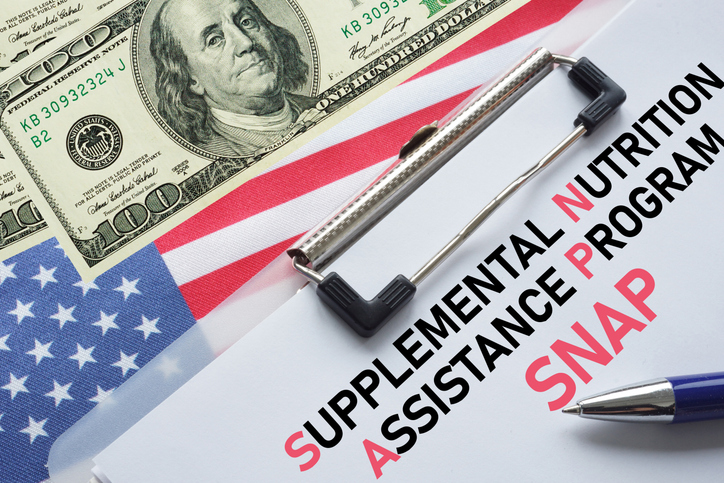My daughter got here into this world 4 months too quickly.
For 4 months, we lived beneath the blinking lights and beeping machines of the neonatal intensive care unit at top-of-the-line youngsters’s hospitals in the US. Each single day, I watched her chest rise and fall with fierce dedication—a rhythm extra sacred than any track I’d ever heard. And each single day as I used to be therapeutic, physique torn and spirit shaken, I saved watch. Questioning if she would survive the evening.
My then-husband and I each labored full-time. We had what folks name “good jobs.” We had non-public insurance coverage. We had achieved issues the so-called “proper” method. And nonetheless, my daughter’s and my hospital payments climbed towards a whole lot of hundreds of {dollars}.
Medicaid saved us.
It stepped in the place our non-public insurance coverage fell quick. It coated the care that helped my daughter stay. It gave me area to recuperate from the problems of her delivery. And since I certified for Medicaid, I additionally certified for WIC, which ensured there was meals within the fridge and system within the cupboard after I couldn’t nurse. With out these packages, I’d nonetheless be in debt as we speak, nearly twenty years later. I may need misplaced our house. I truthfully don’t know the way I’d’ve made it again to myself.
Public help didn’t simply assist us survive; it helped us recuperate and thrive. It gave us a second likelihood to stay with dignity.
So after I hear politicians speak about “lazy welfare mothers” or “irresponsible spending,” I consider moms like me. I consider infants like mine. And I do know they’re flat out mendacity.
The “Massive Lovely Invoice,” handed July 3, 2025, is every thing however lovely. It’s treacherous. It slices by means of Medicaid and shreds the very helps that maintain households like mine afloat. It does this all whereas handing over $1.5 trillion in tax cuts to billionaires and companies.

For Black girls, particularly, this invoice isn’t just dangerous coverage; it’s a blueprint for abandonment and deep hurt. The invoice consists of the most important Medicaid cuts in U.S. historical past. That’s not simply numbers on a web page; that’s a demise sentence for a few of us.
Greater than 65% of Black births are coated by Medicaid. And nonetheless, Black girls are thrice extra more likely to die from pregnancy-related causes than white girls. When a mom hemorrhages and dies as a result of she couldn’t afford prenatal care, the state will name it a tragedy. When a child is born too early as a result of her mom had to decide on between groceries and fuel to get to the clinic, will probably be known as unlucky. However we all know higher.
None of what’s coming will probably be mere misfortune. It will likely be the results of intentional coverage. It will likely be neglect baked into legislation.
The Massive Lovely Invoice additionally targets Deliberate Parenthood, stripping Medicaid funding from clinics that supply abortion companies, even when the cash is used for preventive care. The invoice doesn’t simply go after abortion—it threatens entry to most cancers screenings, STI testing, prenatal visits, and contraception, particularly for low-income sufferers who depend on these clinics as their solely supply of care.
Over 2.4 million folks, lots of them Black and Brown girls, rely closely on these services for reproductive care. And when these clinics shut, Black girls will probably be hit hardest. We already die from cervical most cancers at charges 65% larger than white girls. Denying entry to reproductive care isn’t simply merciless; for Black girls, it’s a calculated resolution — a quiet, systemic verdict on who’s allowed to heal and who’s left to die.
One other method this atrocious invoice harms Black girls is in the way it expands work necessities for SNAP, demanding that recipients log 80 hours per 30 days of labor, volunteering, or coaching, whilst prices rise and wages stagnate. However let’s be clear: Black girls are already among the many most energetic labor teams on this nation. Many people are working a number of jobs whereas caring for elders and youngsters. We’re doing essentially the most with the least, and nonetheless, we’re requested to show our price, again and again.
We all know this invoice isn’t about encouraging work. It’s about punishing poverty. It’s about turning starvation right into a take a look at and forms right into a weapon. And we additionally know who will probably be harm most. Almost 1 in 4 Black youngsters depend on SNAP to eat.
These hungry youngsters will study early that the leaders of this nation see their wants as a burden. Hungry moms will skip meals so their youngsters don’t should. And too many hardworking households will internalize their struggles, believing their starvation is a private failure, relatively than the results of a authorities that has turned its again on their most elementary wants. SNAP doesn’t simply fill plates. It protects dignity. And whenever you take it away, you don’t simply trigger starvation—you trigger hurt that may echo for generations.

Housing vouchers and little one care subsidies are additionally deeply slashed by the “Massive Lovely Invoice,” stripping away helps that Black girls depend on to remain housed and maintain down jobs. With out these essential packages, extra of us will probably be pushed into homelessness, and extra of our kids will probably be left with out care—a actuality underscored by reporting that the proposal would reduce roughly 43% of federal housing help, affecting as much as 3.8 million folks.
When these foundations crumble, households aren’t simply harassed; they’re left susceptible to displacement and systemic breakdown. And when housing turns into unstable or a mother or father misses a medical appointment as a result of she will’t get off work, the federal government doesn’t ship assist. It sends Youngster Protecting Providers to surveil and separate households.
Poverty turns into neglect, mother and father change into suspects, and youngsters change into case numbers. This invoice will trigger extra household separations, not as a result of Black moms are unfit, however as a result of we’re under-resourced.
Because the Youngster Welfare Info Gateway explains, poverty-related hardships like housing instability and lack of childcare typically result in little one welfare involvement, even when no hurt has occurred. We should assume deeply about what number of extra Black households will probably be torn aside by the kid welfare system, on condition that 53% of Black youngsters will face a CPS investigation earlier than the age of eighteen—a stark reflection of how racism and racial capitalism, not parental unfitness, too typically drive the surveillance and separation of our communities.
However right here’s what they don’t rely on: Us.
Black girls have all the time turned shortage into sanctuary. We’ve all the time constructed networks of care from the crumbs we had been handed. Via mutual help, we feed one another, home one another, and heal one another. We present up when methods don’t—as a result of nobody is aware of higher than Black girls that we are able to’t depend on methods to save lots of us. These efforts are usually not, and have by no means been, simply acts of kindness. They’re acts of resistance, of technique, and of survival.
It’s additionally essential to notice, although, that Black girls deserve greater than survival. We deserve pleasure, relaxation, neighborhood, and security. Not divestment, surveillance, and punishment. And till this nation learns easy methods to give us these issues, we’ll proceed constructing them with our personal palms, in our personal names, for our personal folks.
The “Massive Lovely Invoice” just isn’t lovely—it’s brutal. A love letter to the rich, and a warning to the remainder of us. However we’re not warnings. And because the nice poet and thinker Audre Lorde reminds us: we’re not solely casualties—we’re additionally warriors. We’re moms, sisters, healers, and builders. We’re those who make this nation doable, even because it tries to erase us. So we are able to’t be silent on this second. We should manage, protest, defend, and pour into one another. As a result of solidarity will carry us ahead.
And we are going to carry one another. Repeatedly.
Josie Pickens is an educator, author, cultural critic, and abolitionist strategist and organizer. She is the director of upEND Motion, a nationwide motion devoted to abolishing the household policing system.
SEE ALSO: